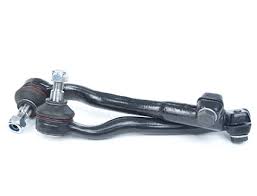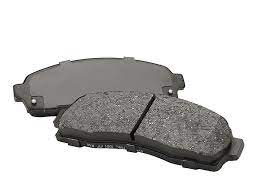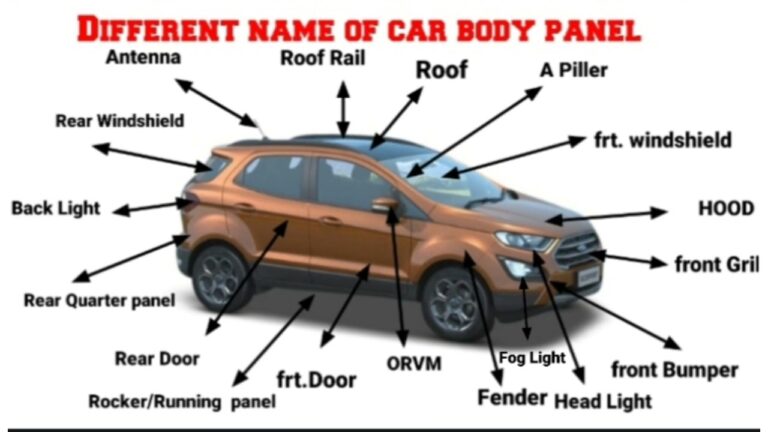Fuel injectors are a critical component of modern engines, providing the necessary fuel to power the vehicle. They play a crucial role in the combustion process, ensuring that the engine operates efficiently and effectively. In this article, we will explore the importance of fuel injectors, how they work, and their impact on overall engine performance.
What are Fuel Injectors?
Fuel injectors are small nozzles that deliver a controlled amount of fuel into the combustion chamber of an engine. They are typically located on the intake manifold and are responsible for spraying the fuel into the cylinders in a fine mist. This process ensures that the fuel is evenly distributed and atomized, allowing for a more efficient combustion process.
Modern fuel injectors are electronically controlled and work in conjunction with the engine’s electronic control unit (ECU). The ECU monitors various engine parameters such as air flow, engine temperature, and throttle position to determine the optimal amount of fuel to inject into the cylinders. This precise control allows for better fuel economy, reduced emissions, and improved overall engine performance.
Types of Fuel Injectors
There are several different types of fuel injectors, each with its own unique characteristics and advantages. The most common types include:
| Type | Description |
|---|---|
| Throttle Body Injectors | These injectors are located in the throttle body and spray fuel directly into the intake manifold. They are commonly found in older vehicles and are less efficient than other types of injectors. |
| Multi-Port Fuel Injectors | These injectors are located in each cylinder’s intake port and provide a more precise and efficient fuel delivery system. They are commonly found in modern vehicles and offer better performance and fuel economy. |
| Direct Fuel Injectors | These injectors are located directly in the combustion chamber and provide the most precise fuel delivery system. They are commonly found in high-performance vehicles and offer improved power and efficiency. |
Each type of fuel injector has its own set of advantages and disadvantages, and the choice of injector type depends on the specific requirements of the engine and vehicle.
How Do Fuel Injectors Work?
The operation of fuel injectors is relatively simple yet critical to the overall performance of the engine. When the engine is running, the ECU sends signals to the fuel injectors to open and close at specific times, allowing the fuel to be sprayed into the combustion chamber at the precise moment it is needed.
When the fuel injector opens, pressurized fuel is sprayed into the intake port or combustion chamber in a fine mist. This mist ensures that the fuel is evenly distributed and atomized, allowing for efficient combustion and maximum power output. The precise control of the fuel injection process allows for optimal fuel economy, reduced emissions, and improved engine performance.
The Importance of Fuel Injectors
Fuel injectors play a crucial role in the overall performance and efficiency of modern engines. They are responsible for delivering the precise amount of fuel required for combustion, ensuring that the engine operates at peak efficiency. Without properly functioning fuel injectors, the engine may experience a range of performance issues, including poor fuel economy, rough idling, and reduced power output.
Furthermore, fuel injectors have a direct impact on emissions. By delivering the precise amount of fuel required for combustion, fuel injectors help reduce harmful emissions such as carbon monoxide and nitrogen oxides. This is especially important in today’s environmentally conscious society, where reducing vehicle emissions is a top priority.
Maintaining Fuel Injectors
Proper maintenance of fuel injectors is essential to ensure their continued performance and longevity. Over time, fuel injectors can become clogged with dirt, debris, and carbon buildup, leading to poor performance and reduced fuel economy. Regular maintenance, such as fuel system cleaning and injector flushing, can help prevent these issues and ensure that the fuel injectors continue to operate at peak efficiency.
In addition to regular maintenance, using high-quality fuel and performing regular engine tune-ups can also help extend the life of fuel injectors and maintain optimal engine performance. By following these maintenance practices, vehicle owners can ensure that their fuel injectors continue to operate effectively and efficiently for years to come.
Conclusion
Fuel injectors are a critical component of modern engines, playing a crucial role in delivering the precise amount of fuel required for combustion. Their precise control and efficient operation contribute to improved fuel economy, reduced emissions, and overall engine performance. By understanding the importance of fuel injectors and the role they play in the combustion process, vehicle owners can appreciate the significance of proper maintenance and care to ensure their continued operation and longevity.
In conclusion, fuel injectors are an essential part of modern engine technology, and their impact on overall engine performance cannot be overstated. By understanding how fuel injectors work and the importance of maintaining them, vehicle owners can ensure that their engines continue to operate at peak efficiency for years to come.
,refusal: null








Just browsing around and saw 5gbet0. Decent selection of games, I’ll give them that. Gonna poke around a bit more and see what’s up. Check it out for yourselves though! 5gbet0
Okay, 6ffnhacai, you’re up! I’m ready to see if this site lives up to the hype. Fingers crossed for some lucky spins! Give it a shot and tell me what you think: 6ffnhacai